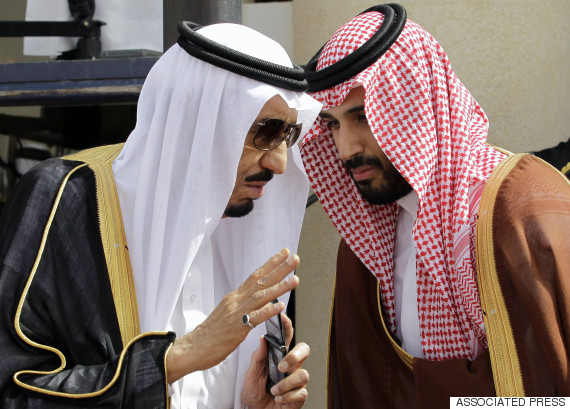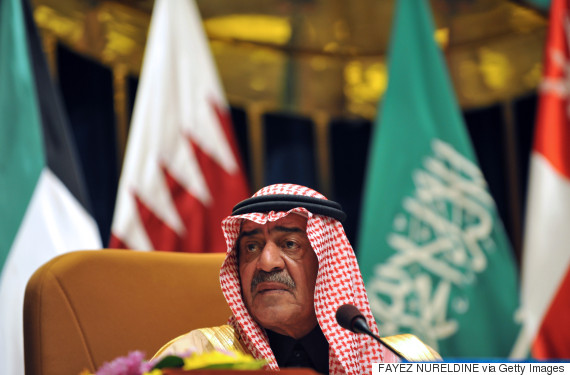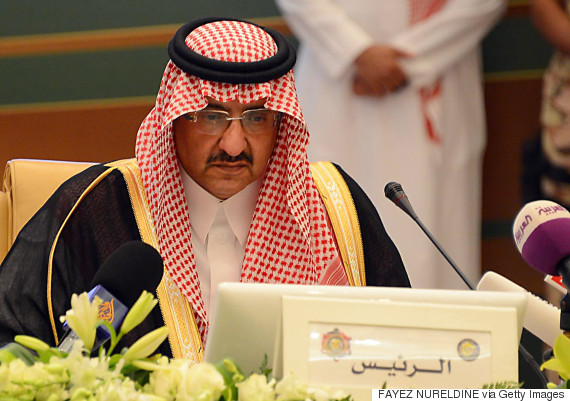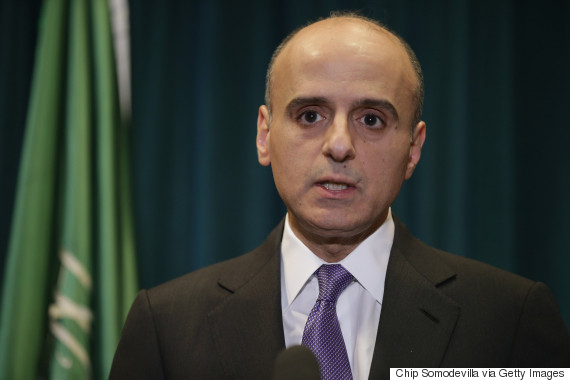Every week, The WorldPost asks an expert to shed light on a topic driving headlines around the world. This week, we spoke with Robert Lacey about Saudi Arabia's royal reshuffle.
Saudi Arabia's King Salman reshuffled his cabinet and appointed a new line of heirs this week, in a major shake-up of the top echelons of power in the conservative kingdom.
Prince Mohammed bin Nayef, 55, became the first grandson of the country's founding monarch to be appointed crown prince, marking a historic shift of power to the next generation of Saudi royals. King Salman's son, Prince Mohammed bin Salman, believed to be in his early 30s, was named deputy crown prince, consolidating a meteoric rise to power that saw him appointed Saudi defense minister in January.

The 79-year-old king -- just three months into his reign -- also reshuffled an array of government ministers, including removing the sole female member of cabinet.
The new appointments come during tense times in the region. Saudi Arabia is leading a coalition that's bombing neighboring Yemen, hoping to dislodge Houthi rebels it accuses of being proxies of Iran. At home, Saudi Arabia is cracking down on suspected extremists, and having to draw on its financial reserves (which, granted, are large) after oil prices plummeted last year.
To understand the implications of King Salman's reshuffle, the WorldPost spoke to historian and author Robert Lacey, who has studied Saudi Arabia for decades and wrote two acclaimed books on the country, The Kingdom and Inside the Kingdom.
King Salman just replaced his half-brother as next in line for the throne, putting his nephew in his place and his son second in line. What do you think was behind this decision?
There are dynastic and family reasons, but the main reason is to finally establish the new generation in charge of the kingdom. The Saudi monarchy is seen as ancient and sclerotic, but now the next two people in line to the throne are in their 50s and 30s.
Another interesting part of this reshuffle is that neither Crown Prince Mohammed bin Nayef nor Deputy Crown Prince Mohammed bin Salman are the eldest sons of their families. It's traditional in Saudi Arabia for the eldest son to get the job, but these appointments show they are being picked based on ability.
The main reason is to finally establish the new generation in charge of the kingdom.
Do you think former Crown Prince Muqrin really stepped down voluntarily?

I think he himself would agree with the main reason for the reshuffle, which is to hand power to the new generation. Muqrin is not going to go around stabbing anyone in the back.
He was always controversial in that role. When late King Abdullah made him deputy crown prince in 2013, there was some backlash. His mother was from Yemen, and to some in Saudi that meant he did not have the required royal, religious or tribal lineage.
So, who is the new crown prince? What sort of king would he make?
Mohammed bin Nayef is the most outstanding figure of the new generation. He is immensely able, hard-working and quiet. He is different in style to the current king. He is more like a university professor than a big desert Bedouin like the current king, in the mold of the kingdom’s founder.

Some people describe him as authoritarian, but he is much more liberal than people might think. He was behind the re-education program for fundamentalists in the kingdom. He will be the first to admit the project was not altogether a success, but it was a very idealistic endeavor.
Mohammed bin Nayef has something of a magical aura in Saudi Arabia, because of how he survived a 2009 assassination attempt. An al Qaeda member who pretended he had reformed blew himself up standing next to Mohammed bin Nayef, and the prince emerged virtually unscathed. There is a sense in Saudi Arabia that he was specially spared and chosen because of this incident.
What about the new deputy crown prince, Mohammed bin Salman?
He is more controversial. Nobody doubts that he has an unusually strong work ethic for a Saudi prince, but he is not that popular. As with many forceful characters, he can rub people up the wrong way.
Mohammed bin Salman has become incredibly important to his father, the current king. He has been his father’s right-hand man since the king was governor of the Saudi capital Riyadh. There are many rumors about King Salman’s health, and whatever their veracity, the king does seem to flag at the end of the day, which is not a problem for his young son.
How was this reshuffle received by the royal family in Saudi Arabia?
The official announcement of Mohammed bin Salman’s new position says he had the support of the majority of the family council. The same language was used when Muqrin was appointed with some controversy. It is striking, as normally the position should be approved by the whole council.
Some say this reshuffle confirms the dominance of one branch of the Saudi royal family, the Sudairi branch. But it is also a matter of hard work and talent rising to the top.
How is all this viewed by people in Saudi Arabia?
In general, the country just demands competence and authority. There is no real alternative to the ruling royal family in Saudi Arabia. There is no real threat of the Saudi monarchy being toppled.
That said, there is a lively debate in Saudi Arabia about the future of the country. While there is no formal democracy, people are debating and discussing these issues, especially online.
There is no real alternative to the ruling royal family in Saudi Arabia.
Which of the other new appointments this week should people be paying attention to?
This is an enormous reshuffle that goes right through the government. Everyone is fixated on the royal family, but one of the most important changes was that the foreign minister was replaced by a non-royal (former ambassador to the U.S. Adel al-Jubeir).
The only woman in government, Deputy Education Minister Nora al-Fayez, was removed because the fundamentalists got upset about her work with with girls’ education.
Do you expect any of these changes to impact Saudi policy, whether domestic or foreign?

The appointment of (foreign minister) al-Jubeir and (crown prince) Mohammed bin Nayef cements the Saudi-U.S. alliance during a period of uneasy relations as well as extreme volatility in the Middle East. Washington has concerns about what Saudi Arabia is trying to do in Yemen, and in Saudi Arabia there is great concern about Washington’s rapprochement with Iran.
Domestic policy is unlikely to change, but will continue in the conservative direction of King Salman. When he took the throne this January, a rift had emerged between the traditionalists and the ruling royal family. Since then, King Salman has tried to reconcile the two by removing people aligned to late King Abdullah and bringing the conservatives on board. Saudi Arabia’s biggest threat is from fundamentalists, and the king wants to re-establish an Islamic consensus to counter this.
This interview has been edited and condensed for clarity.
More from The WorldPost's Weekly Interview Series:
- Why The Deadly Attacks Against Foreigners In South Africa Come As No Surprise- Is Al Qaeda In Decline?- Anguish In Argentina After Prosecutor's Mysterious Death- Naming The Dead: One Group's Struggle To Record Deaths From U.S. Drone Strikes In Pakistan

